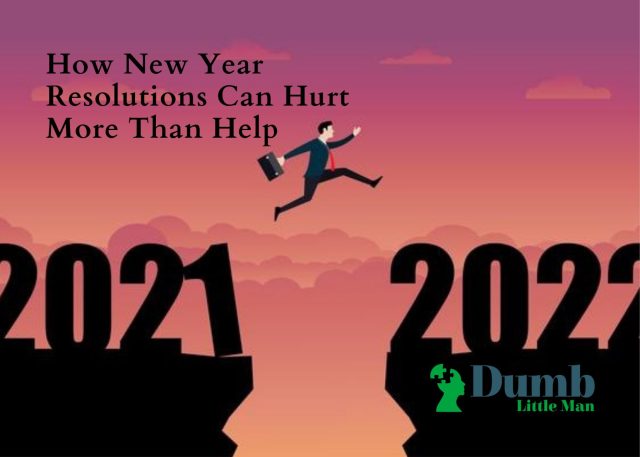It’s December and you’re wading your way through all that the holiday season brings – joy, food, and gift-giving. At this point in the year, you may have thrown all your personal restraint out the window knowing that in a few weeks you’ll get a fresh start. So, in the back of your mind, you add a little category you call “next year’s problems” and catalog what will become your New Year’s resolutions.
Next year is a perfect time to start something or make the changes you want to make, right? This year’s already a wash, what’s done is done, might as well look forward and just ride things out.
That’s a very common mindset this time of year.
Let’s be clear – there’s nothing wrong with wanting to make a change, and there doesn’t have to be anything bad about making changes at the beginning of the year. But most New Year’s resolutions fail within the first two months of making them and this can lead to bigger problems for the rest of the year.
Reasons New Year’s Resolutions Fail
It’s easy to get excited about making changes in the new year. It really seems like a perfect time to turn over a new leaf. However, there are some inherent flaws to these best-laid plans.
⫸ Excitement isn’t the same as commitment.
We want to believe January 1st is markedly different than December 31st. Because of that, we can easily get really excited about all the things that are going to be different, including our behavior or habits. But excitement eventually fades and what we’re left with is the boring, hard work it takes to keep these resolutions. Excitement is fun, it releases the brain chemical that gives us the feeling of pleasure. The problem is that as excitement fades and dopamine levels fall our interests can wane and we are less apt to keep those resolutions.
⫸ The “eyes bigger than your stomach” effect.
As a part of that excitement, we can want to take on everything. All those things you want to do or change – might as well do them all at the start of the year, right? So, you resolve to lose weight, eat better, save more money, be a better friend, write a novel, run a marathon, and learn to speak Mandarin. You’ve got a year, after all, it’s doable. Well, maybe if you’ve planned it out, set small goals, and have been realistic about them – but that’s not usually the case. Too often the glut of changes you promise yourself becomes overwhelming and you end up scrapping them all.
⫸ All or nothing approach.
Going to stop smoking? You go cold turkey. Want to lose weight? You throw everything out and keep only cauliflower and protein drinks. Taking up running? You get all the gear and set off to run 5 miles on January 2nd. Jumping with both feet into the middle of a progression rather than beginning slowly and working your way up is a recipe for failure.
⫸ It takes longer to set a goal than a resolution.
When did you set these resolutions? Right after Christmas? New Year’s Eve? That’s a problem. To really enact change you need to decide on your goal and put the time and research in to figure out how to achieve it. That takes longer than just deciding your going to do something at midnight.
These are some of the most common of many reasons that New Year’s resolutions often fail.
The Damaging Effects Of New Year’s Resolutions
Okay, but everyone does this. It’s no big deal, right? Wrong. Failed New Year’s resolutions can cause problems that plague you for the year.
1. Feeling like a failure.
When you fail at something – or many somethings – it’s easy to struggle with feelings of failure. These feelings can become woven into our personal opinions of ourselves and drive that opinion down. This leads to increased negative self-talk and a reluctance to try new things, seek personal growth, or make the changes that really need to be made in your life.
2. A “can’t do” attitude.
When you resolve to do something and fail it’s very easy to develop a “can’t do” attitude. Once you’ve decided you “can’t” it can become a self-fulfilling prophecy, and you won’t.
3. Acceptance of the unacceptable.
Overweight? Smoker? Chronic nail biter? Whatever it is that really needs changing, when you feel you “resolved” to make a change and didn’t, especially if this becomes a pattern, you run the risk of just accepting the unacceptable. If your resolutions surround things that are a matter of importance to health and well-being either mentally or physically, acceptance of the status quo can even be dangerous.
4. Depression.
All of this, especially if it’s a year-after-year pattern, can lead to depression https://www.guystuffcounseling.com/counseling-men-blog/im-depressed-what-do-i-do. “I failed, I can’t do it, I’ll never change or fix things,” can be an unfortunate thought process that leaves you in a very poor mental space and can cause a downward spiral into depression.
None of these are the outcomes we’re expecting for when the clock strikes 12 and we ring in the New Year.
What To Do Instead
Rather than making New Year’s resolutions consider instead setting smaller quarterly goals with monthly benchmarks to mark your progress toward achievement. This will allow you to make a plan for change that perhaps begins in January but also gives you the opportunity to develop more achievable goals and fine-tune them along the way.
It also means that December won’t become a personal free-for-all as you wait until January to make better choices. The best thing about skipping New Year’s resolutions in lieu of smaller, well-planned goals is the much greater possibility of the feeling of success as you make progress toward the change you’d like to see.
